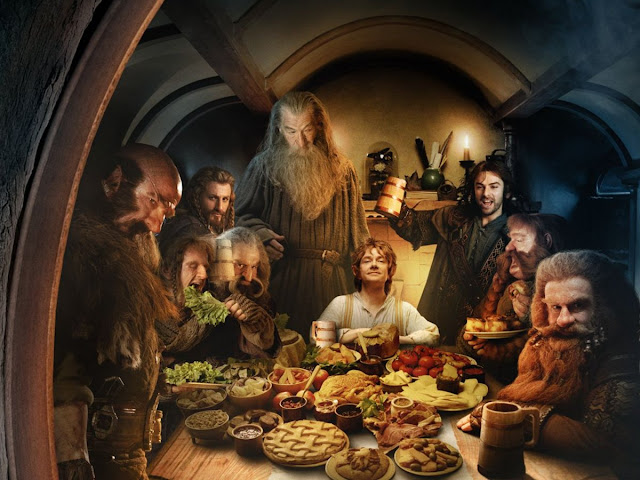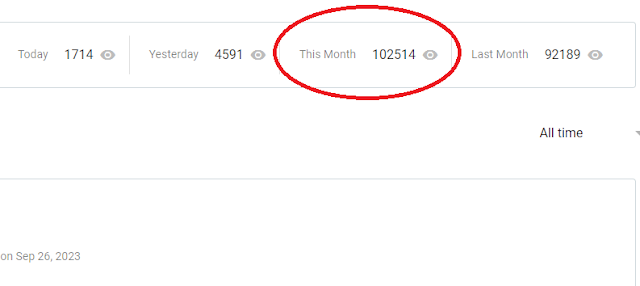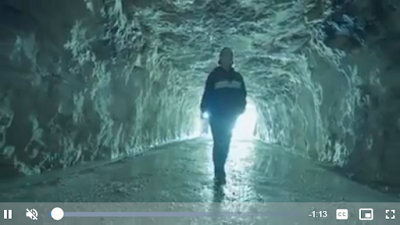Last year I posted a rambling about what autumn meant in the olden, agrarian days. I noted that autumn, when the harvests were good, was a time of great celebration because it meant another year of life. Of course if the harvests weren't good, autumn would not be as joyful.
In the post, I quoted from Washington Irving's The Legend of Sleepy Hollow. It detailed many of the scrumptious vittles that Mr. Crane beheld as he strolled across the Hudson River landscape. It included not only baked and cooked wares, but also the succulent fruits of the harvest, from pumpkins to apples and everything in between.
I was thinking on that as I read through The Hobbit this year. As I've said in the past, for the longest time I was never much of a fan of The Hobbit. I have been a huge fan of The Lord of the Rings since I was in college. But The Hobbit was part of that broader fantasy and sci-fi genre that has never - to this day - interested me that much.
Nonetheless, it has grown on me over the years. I've come to appreciate its place in the greater Tolkien canon. Unlike LoTR, The Hobbit is pure fairy tale. A children's book in the best sense, you see some of Tolkien in its pages in ways you might not in his more influential follow up.
One way was Tolkien unpacking that rural, later Victorian era social setting that finds its way into his Shire. It's there in Rings, at least at the beginning. But as more than one literary commentator has pointed out, as the hobbits move from Hobbiton to take part in the greater War of the Ring, they leave that English pastoral setting and enter a vast, sweeping epic tale of mythical heroism.
In The Hobbit, however, that Victorian setting oozes through the entire narrative. And one way it raises its head is through Tolkien's emphasis on food. In The Hobbit, Tolkien lays out what for him must have been standard, and at times coveted, items for a Victorian era menu. Not only in the Unexpected Party, but nowhere else as much as in that first chapter. Nor is it to say he never addresses menu items or the contents of a table in Rings. It's just not quite unpacked to the same level.
So I thought we could look at the world's first introduction to Middle Earth in The Hobbit. Below is what I came up with looking at that party menu in Chapter One. It is the most extensive list of foods that I'm aware of in any of his writings. Here he lets us see what the table should have looked like, at least as Tolkien envisioned it.
At the unexpected party, before Bilbo meets the dwarves, he is preparing a 'low tea' for Gandalf the wizard. For us Yanks, we might think that means a mundane, working class tea. But in one of those linguistic twists in a culture, in Victorian England the 'low tea' was for the upper class. It was set on a 'low' table, around plush furnishings, with the dainties and the pastries and the fine China we associate with your classic British tea. The 'high' tea was called that because it was set on the higher tables associated with the working class, the servant class, and others who used higher set tables. Such teas would be for a later time of day, combined with dinner, and accompanied more with cold meats and cheeses and such.
 |
| Close up of a 'beautifully round' seed cake |
Anyway, Bilbo's tea is essentially sideswiped by the arrival of two dwarves, rather than Gandalf. These two, Balin and Dwalin, are offered tea but dismiss the offer and ask instead for seed cakes, along with beer rather than tea. Bilbo obliges with pints of beer and two 'beautiful round' seed cakes, which he appeared to possess in numbers.
The other dwarves appear over time, up to the total number of thirteen plus Gandalf. Fili and Kili arrive and join in and appear to accept what the first two are eating. Nothing else is mentioned. When Dori, Nori, Ori, Oin and Gloin arrive, however, we're told they ask for cakes as well, along with a different list of beverages: ale, porter and even coffee.
The joke there is that in English parlance, the terms 'ale' and 'porter', are basically two different terms for the beer mentioned above. The only difference is that the 'porter' references what we nowadays call stout, as in Guinness. The other two terms are interchangeable for ale, as opposed to beers that we call lagers. Eventually the seed cakes are gone, and they are treated to buttered scones in their place.
The remaining dwarves finally arrive along with Gandalf and Thorin. It is here you get the biggest list of specific foods and drink. It is implied they are offered tea again when Gandalf asks if there is anything left, but like the first two dwarves, he responds with a hearty 'no thanks'. I wonder if that was Tolkien digging at England's most famous beverage based pastime. Instead Gandalf asks for a little red wine, and Thorin jumps in with his only request by asking for the same.
The other dwarves in this last arrival then interject a series of specific requests. Bifur asks for raspberry jam and apple tart, while Bofur asks for mince pies and cheese. Bombur - who Tolkien repeatedly points out is especially fat - asks for porkpie and salad. The other dwarves call in through the door and ask for more cakes and ale and coffee. To this Gandalf adds a request for a few eggs, as well as cold chicken and pickles. Whether by more cakes they meant more seed cakes, or different types of cakes, isn't said.
So the whole menu of Bilbo's unexpected party looks a bit like this, based upon what information we are specifically given:
DRINK
·
coffee Various
·
tea* Offered
only, never accepted
·
pint of beer/ale Balin
and Dwalin
·
ale/porter Various
·
red wine Gandalf
and Thorin
MEATS/DAIRY
·
porkpie Bombur
·
cold chicken Gandalf
·
eggs Gandalf
·
cheese Bofur
VEGGIES/PRODUCE
·
salad Bombur
·
pickles Gandalf
BREADS/PASTERIES
·
biscuit Bilbo
·
mince pies Bofur
·
apple tart Bifur
·
seedcakes Balin and Dwalin
·
buttered scones Various
·
raspberry jam Bifur
I like that Bombur, the overweight dwarf, asks for porkpies (about the heaviest item on the list) and salad (the lightest). I can't help but catch a twinkle in Tolkien's eye when he wrote that, and I don't think it was a random accident. The pickles were a change from the original manuscript. Apparently it originally read 'cold chicken and tomatoes.' For some reason, Tolkien decided tomatoes didn't strike that appropriate Victorian/Middle Earth feel, and went for pickles instead.
 |
| A traditional pork pie |
So there you have it, at least in terms of the unexpected party. The menu was what Tolkien no doubt experienced growing up in the English countryside. With the exception of the red wine, none of it is 'high brow' fare. In fact, the constant offer of tea by Bilbo, having planned a tea with Gandalf, and the one spread that would have echoed upper class British dining, is all but rejected.
It's the middle class, working man's favorite foods you see here. One food historian pointed out that in Leicestershire, there was a product called 'Mowbray Pork Pie' that had been sold since the 1830s, and was very popular through Tolkien's day. Tolkien may have had those in mind when he has Bombur ask for the same followed by his request for a salad, perhaps to make it look good (a bit like ordering a Big Mac accompanied by a diet soda).
So there you have it. The introductory feast for first time visitors to Middle Earth.

















